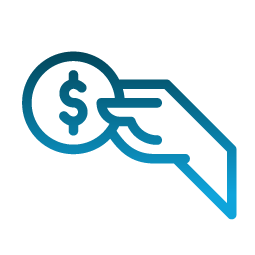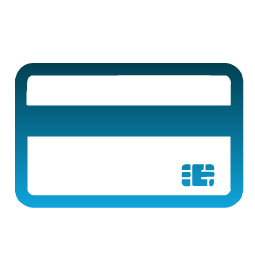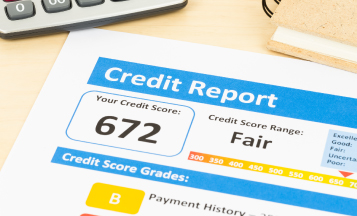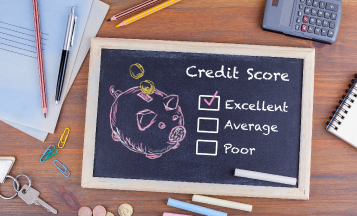A good credit score can earn you lots of advantages in life: lower interest rates on lines of credit and loans, like auto and home loans; better insurance rates; lower security deposits on rentals, cell phone services, and new utilities; and even a stronger job application with employers who run a credit check.
But what does “good credit score” even mean?
The most-used credit scoring models—FICO and VantageScore—use a range of 300 to 850. And here’s how that range breaks down:
- Very poor: 300–579
- Fair: 580–669
- Good: 670–739
- Very good: 740–799
- Exceptional: 800–850

What’s in a good credit score?
Your credit score is made up of the follow five components:
- Payment history: 35% of your score
- Current debt: 30% of your score
- Length of credit: 15% of your score
- New credit: 10% of your score
- Types of credit: 10% of your score
Things that don't affect your score:
These include checking account overdrafts and good payment history on recurring bills like utilities, cell phone bills, gym memberships, or rent—unless the company reports to one of the three reporting bureaus (Equifax, Experian, TransUnion). However, these companies will report unpaid accounts to collections companies, who do report to the credit bureaus—so don’t skip paying these bills!
What to do to obtain a good credit score:

Pay bills on time (payment history)
Pay bills on time. The bills that most directly affect your credit score are payments to lines of credit and loans: car loans, student loans, personal loans, credit cards, retailer credit cards, etc. However, as mentioned above, you also need to pay all of your other bills on time, because falling behind on them could result in your information being reported to a debt collection company, and they will report back to the credit bureaus.
If you think you’re going to fall behind on a bill, contact the company and see if you can get a grace period or extension.
Keep your credit card balances low (debt capacity/credit utilization)
The rule of thumb with credit utilization is to stay below 30% on each individual credit card and on your combined credit limit. So, if you have a card with a $1,000 limit, you shouldn’t have more than a $300 balance on that card at the end of each billing cycle. If you had three cards—one with a $500 limit, another with $750, and the last with $1,000—you wouldn’t want to carry a balance of more than $675 dollars in total.
If you find that you’re routinely using more than 30% of your credit capacity every month but still paying off the balances, you can ask the credit card companies to increase your limit so you maintain that 30% or less credit utilization each month. Just be sure not to fall into the trap of spending more money just because you have a higher credit limit! (A credit increase may temporarily lower your credit score a little, but it will quickly recover.)
Loan balances and lines of credit also impact your level of debt and your credit score. Having too high of a debt-to-income ratio can lower your score. So, while you’re working to not overutilize your credit capacity, also aim to carry as little debt as possible.

Don't close old credit cards (length of credit history)
This may sound counterintuitive at first, but it’s in your credit score’s best interest to keep old credit cards open—even if you no longer use the card (maybe you don’t use its perks or found a card with a lower interest rate). Here’s why.
When you close a credit card, you lose that credit history, and since 15% of your credit score depends on your average credit history length, this can ding your score. It also reduces your available credit, which in turn lowers that 30% credit utilization threshold you’re trying not to exceed.
The exceptions to this advice are if it’s a recent credit card you opened (in which case it won’t hurt your history as much to close it) or if there are high yearly fees on the credit card and you can’t negotiate with the company to have them waived.
Limit applications for new credit (new and types of credit)
While using a varied mix of credit—credit cards, loans, etc.—is generally part of a higher credit score, you want to limit the number of applications for new credit, especially in a short span of time. When you apply for a new credit card or loan, the lender will make a “hard inquiry” on your credit report, which will temporarily lower your score. And remember, opening a new line of credit will lower your average credit history length.
So, while in theory the ideal mix might be one car loan, one mortgage, and a few types of credit cards, it isn’t worth taking on more debt than you can repay or having too many new lines of credit to earn a perfect 10 on this component of your score.

Watch your credit report
Errors on the part of the bureaus or lenders that report to them do happen. As does identity theft and credit fraud. Don’t let others’ mistakes drag your credit score down when you’ve worked so hard to earn a high mark.
Check your credit score regularly. Nymeo members have free access to their credit report in online banking, and it does not affect your score. Make it a routine to check for errors and correct mistakes.
Category: Credit & Budgeting



